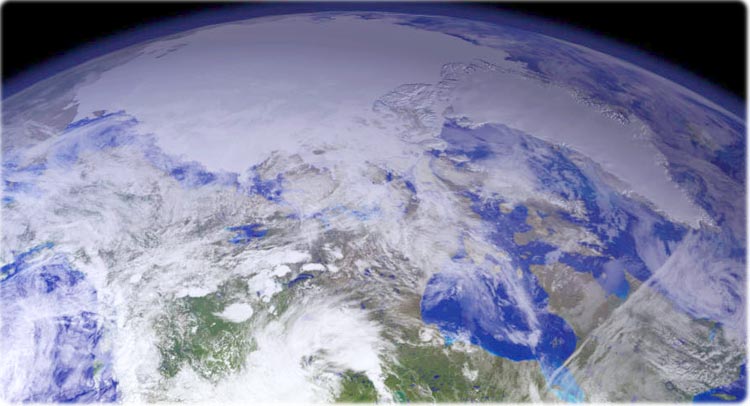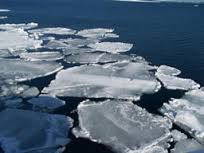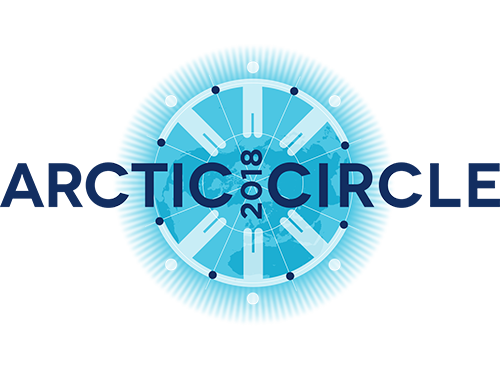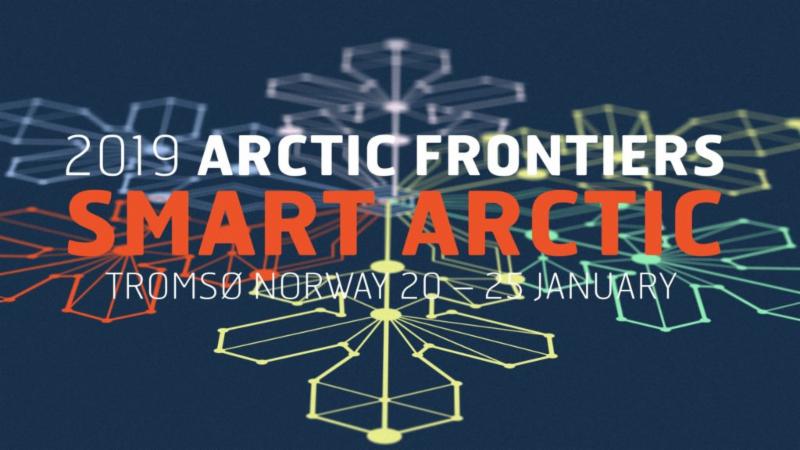|
|
|
|
|
|
|
|
No Arctic-science events are scheduled for today.
|
Media
How Traditional Food is Helping Communities in a Changing Arctic. Between the Igloo Church and the Piviniit Thrift Store, on a street in the far north of Canada, is a food center with an unusual mission: to feed the local community on the meat of seals, whales, and other charismatic Arctic creatures. The Qajugturvik Food Center is based in Iqaluit, and while it's the capital city of Nunavut, it's also about as remote as can be, with a population of 7,740 and a serious food problem. Pacific Standard
 Ice Surveys and Neckties at Dinner: Here's Life at an Arctic Outpost. Ice Surveys and Neckties at Dinner: Here's Life at an Arctic Outpost. For the past 40 years, thanks to satellite measurements, scientists have known that sea ice coverage in the Arctic is shrinking. Global warming has reduced the extent of ice in the region in summer, when it is at its lowest, by nearly 13 percent a decade. That has led some researchers to predict that the Arctic could be ice-free in summers by the middle of the century. But ice extent is only part of the story. Scientists want to know thickness, too, because together with extent that tells them the total volume of ice in the Arctic. New York Times 10 Big Ideas to 'Up America's Game in the Arctic.' This summer, the Arctic is heating up. For the first time in history, we witnessed new waters open off northern Greenland and a container ship successfully sail through the most difficult part of northern Russia. But it was Secretary of Defense James Mattis' unmistakable and inimitable challenge this past June that caught the world's attention: "America's got to up its game in the Arctic." In August, the Naval War College in partnership with Alaskan Command helped answer the Secretary's call by bringing together an unprecedented gathering of senior military leaders and experts to discuss America's future in the Arctic. As two Russian bombers were being intercepted off Alaska, leaders in attendance recognized the need to keep an eye on Russia's military build in the Arctic region. But to the surprise of many, it was the rise and influence of China's soft power in the Arctic that dominated discussion-a chief priority and strategic challenge shared by all nations that call the Arctic home. National Interest The Arctic Youth Ambassadors Program is Bringing Awareness to Environmental and Community Issues in Alaska. In the far north of the United States, young Alaskans are fighting to protect for their homes. As a result of global warming and climate change, shifts in the Alaskan Arctic have been experienced over the past decade in the form of coastal erosion, increased permafrost melt, decreased snowfall in the winters, receding glaciers, and changes in sea ice, just to name a few. Teen Vogue  Warmer Arctic Waters Attract Surprising Visitors: Clams, Fish and Whales. Warmer Arctic Waters Attract Surprising Visitors: Clams, Fish and Whales. On a ship near the top of the planet, a 54-kilogram steel claw dumps out mud freshly scooped from the bottom of the sea. Jackie Grebmeier gets to work with a pair of tweezers, picking shrimplike critters called amphipods out of the muck. Grebmeier has been digging up animals in the waters between Alaska and Russia for more than 30 years. And she has noticed a trend: A retreat has begun here at the edge of the Arctic. With temperatures rising, creatures such as amphipods have been inching northward. Meanwhile, clams and fish and whales from balmier climes have begun to move in. Stuff
|
|
Future Events
Scientific Exploration of the Arctic and North Pacific (SEA-NorP), September 25-27, 2018 (Mt. Hood, Oregon USA). This workshop will include discussion of hypotheses that can be tested by scientific drilling in the region, the technology necessary to achieve those goals, ideal sites for drilling based on existing data, and where additional site survey data is needed. The goal of the workshop organizers is that multiple proposals will be initiated at the workshop, both for full cruise legs and for shorter, targeted expeditions around the following themes: ocean gateways, geohazards, volatile cycling, ice histories at transition zones, biosphere and climate.
The second Arctic Biodiversity Congress is hosted by the Conservation of Arctic Flora and Fauna (CAFF), the biodiversity working group of the Arctic Council, and the Ministry of the Environment, Finland. The second Arctic Biodiversity Congress will build on the success of the first Congress, held in 2014 in Trondheim, Norway, and will bring together scientists, policymakers government officials, Indigenous representatives, Traditional Knowledge holders, industry, non-governmental organizations, and others to promote the conservation and sustainable use of Arctic biodiversity.
** New this week ** Canada Permafrost Association Annual General Meeting, October 10-12, 2018 (Whitehorse, Yukon Canada). The Canada Permafrost Association (CPA) is being formed to address the multidisciplinary nature of permafrost-- bridging natural and social sciences, engineering, and governments. A central goal of the CPA is to assist in the transfer of knowledge between disciplines and across various demographics. This will better equip Canadians to respond to permafrost-related problems. As the inaugural meeting of the CPA, participants will take part in some of the formative discussions of the Association. In addition, there will be opportunities for participants to present research findings, keynote addresses and a field trip.
 Arctic Circle Assembly, October 2018 (Reykjavik, Iceland). The annual Arctic Circle Assembly is the largest annual international gathering on the Arctic, attended by more than 2000 participants from 60 countries. It is attended by heads of states and governments, ministers, members of parliaments, officials, experts, scientists, entrepreneurs, business leaders, indigenous representatives, environmentalists, students, activists and others from the growing international community of partners and participants interested in the future of the Arctic. Arctic Circle Assembly, October 2018 (Reykjavik, Iceland). The annual Arctic Circle Assembly is the largest annual international gathering on the Arctic, attended by more than 2000 participants from 60 countries. It is attended by heads of states and governments, ministers, members of parliaments, officials, experts, scientists, entrepreneurs, business leaders, indigenous representatives, environmentalists, students, activists and others from the growing international community of partners and participants interested in the future of the Arctic.
Arctic Science Forum Associated with the 2nd Arctic Science Ministerial, October 25, 2018 (Berlin, Germany and via webcast). How vulnerable and how resilient are nature and the people of the Arctic region? How well do we understand the regional and global dynamics which are driving change in the Arctic? What impact will change in the Arctic have on us? These and other questions are the focus of this two-day conference. It will take interdisciplinary research in the Arctic to gain an understanding of past and future processes - a complex and cost-intensive venture. This makes an international network of Arctic research so important for delivering better results. Cooperation in research, the exchange of data, collaborative observation and monitoring schemes - international cooperation is imperative in research on the Arctic.
Only the Science Forum, on October 25th, will be webcast. The Arctic Ministerial, on October 26th, will NOT be webcast.
Maritime & Arctic Security & Safety Conference (MASS18) "Arctic Technology" November 15-16, 2018 (Newfoundland & Labrador Canada). Now in its sixth year, MASS has gained an international reputation as a must-attend event to gain a wide perspective on challenges, opportunities and policies related to the Arctic and North Atlantic maritime environments. The aim of this Government of Canada and the Government of Newfoundland and Labrador supported international conference is to promote stakeholder collaboration, technological innovation, harsh environment research & development, and world-class education efforts that are contributing to both Maritime and Arctic issues. This two day conference will draw a diverse group of speakers and attendees representing government, military, Canadian and U.S. Coast Guard, industry, academic leaders, Northern Leaders, research and other key stakeholders. We hope you can join us to be a part of this important dialogue
American Geophysical Union Fall meeting, December 10-14, 2018 (Washington, DC USA). The AGU 2018 Fall Meeting will mark another dynamic year of discovery in Earth and space science, serve as the advent of AGU's Centennial year, and provide a special opportunity to share our science with world  leaders in Washington, D.C. As the largest Earth and space science gathering in the world, the Fall Meeting places you in the center of a global community of scientists drawn from myriad fields of study whose work protects the health and welfare of people worldwide, spurs innovation, and informs decisions that are critical to the sustainability of the Earth.
ArcticNet: Annual Scientific Meeting 2018, December 10-14, 2018 (Ottawa, ON Canada). Canada's North is experiencing unprecedented change in its sea and terrestrial ice, permafrost and ecosystems under the triple pressures of climate change, industrialization and modernization. The impacts of these pressures can be seen on food and energy security, shipping, sovereignty, northern community health and well-being, and sustainable development and resource exploitation. All these issues have brought the North to the forefront of national and international agendas. Building on the success of its previous Annual Scientific Meetings and International Arctic Change Conferences, the Arctic Network of Centers of Excellence announces the 14th ArcticNet Annual Scientific Meeting.
 is a global scientific conference on economic, societal, and environmental sustainable growth. This year's theme will be "Smart Arctic," with a pan-arctic emphasis, and an effort to build new partnerships across nations, generations and ethnic groups. Arctic Frontiers provides a forum for dialogue and communication between science, government and industry. The plenary program will have five main sessions: State of the Arctic, Blue Growth, Smart Solutions, Bridging the Gap, and Arctic business prospects. An abstract-driven science program will address Plastics in the Ocean, the Future of Governance and Handling Vulnerability in Arctic Ecosystems, State of the Arctic and A Smart Arctic Future.
 of the AAG includes over 8,500 geographers converging from the U.S., Canada, and nearly 60 other countries in a typical year including geographers, GIS specialists, environmental scientists, and other leaders for the latest in research and applications in geography, sustainability, and GIScience. of the AAG includes over 8,500 geographers converging from the U.S., Canada, and nearly 60 other countries in a typical year including geographers, GIS specialists, environmental scientists, and other leaders for the latest in research and applications in geography, sustainability, and GIScience.
|
|

  
4350 N. Fairfax Drive, Suite 510
Arlington, VA 22203, USA
External links in this publication, and on the USARC's World Wide Web site ( www.arctic.gov) do not constitute endorsement by the US Arctic Research Commission of external Web sites or the information, products or services contained therein. For other than authorized activities, the USARC does not exercise any editorial control over the information you may find at these locations. These links are provided consistent with the stated purpose of this newsletter and the USARC Web site.
|
|
|
|
|
|
|
|
|
 Ice Surveys and Neckties at Dinner: Here's Life at an Arctic Outpost. For the past 40 years, thanks to satellite measurements, scientists have known that sea ice coverage in the Arctic is shrinking. Global warming has reduced the extent of ice in the region in summer, when it is at its lowest, by nearly 13 percent a decade. That has led some researchers to predict that the Arctic could be ice-free in summers by the middle of the century. But ice extent is only part of the story. Scientists want to know thickness, too, because together with extent that tells them the total volume of ice in the Arctic. New York Times
Ice Surveys and Neckties at Dinner: Here's Life at an Arctic Outpost. For the past 40 years, thanks to satellite measurements, scientists have known that sea ice coverage in the Arctic is shrinking. Global warming has reduced the extent of ice in the region in summer, when it is at its lowest, by nearly 13 percent a decade. That has led some researchers to predict that the Arctic could be ice-free in summers by the middle of the century. But ice extent is only part of the story. Scientists want to know thickness, too, because together with extent that tells them the total volume of ice in the Arctic. New York Times Warmer Arctic Waters Attract Surprising Visitors: Clams, Fish and Whales. On a ship near the top of the planet, a 54-kilogram steel claw dumps out mud freshly scooped from the bottom of the sea. Jackie Grebmeier gets to work with a pair of tweezers, picking shrimplike critters called amphipods out of the muck. Grebmeier has been digging up animals in the waters between Alaska and Russia for more than 30 years. And she has noticed a trend: A retreat has begun here at the edge of the Arctic. With temperatures rising, creatures such as amphipods have been inching northward. Meanwhile, clams and fish and whales from balmier climes have begun to move in. Stuff
Warmer Arctic Waters Attract Surprising Visitors: Clams, Fish and Whales. On a ship near the top of the planet, a 54-kilogram steel claw dumps out mud freshly scooped from the bottom of the sea. Jackie Grebmeier gets to work with a pair of tweezers, picking shrimplike critters called amphipods out of the muck. Grebmeier has been digging up animals in the waters between Alaska and Russia for more than 30 years. And she has noticed a trend: A retreat has begun here at the edge of the Arctic. With temperatures rising, creatures such as amphipods have been inching northward. Meanwhile, clams and fish and whales from balmier climes have begun to move in. Stuff


